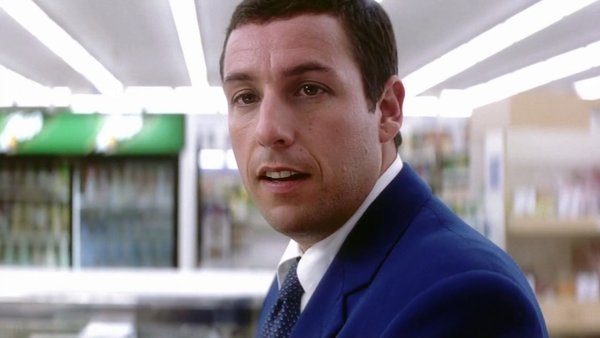10 Bonkers Theories Roger Ebert Had About Famous Movies
4. Adam Sandler's Films Are A Cry For Help

What Ebert Said
That Punch-Drunk Love's brilliance - and Sandler's genius in it specifically - makes you revisit every poor film he's ever made and see them in a wholly different light. They are the haunted cries for help of a truly talented man trapped in the captivity of material he is above.
"Most of Sandler's plots are based on predictable, production-line formulas, and after "Punch-Drunk Love" I may begin seeing them as traps containing a resentful captive. The quirky behavior may be a way of calling out for help. In Big Daddy, for example, the broad outlines are familiar, but not the creepy way his character trains his adopted 5-year-old to be hostile. At one point, ho, ho, they toss tree branches into the path of middle-aged in-line skaters, causing some nasty falls. The hostility veiled as humor in the typical Sandler comedy is revealed in "Punch-Drunk Love" as - hostility."
The Reality
There's actually something in it. Unfortunately, the reality of Sandler's films are that he is trapped by an audience that simply doesn't appreciate when he makes great films: his best performances outside of goofy comedies are defined by painful pathos and sentimentality. He can be truly great (as he was in Punch-Drunk Love, Reign Over Me and Funny People), but the audiences just don't react well.
They make considerably less money than his sillier, less taxing roles, and there is definitely something in the idea of his aggressiveness in those films being frustration. But then again, he makes most of those films under his own production company banner, so maybe he just really isn't that good.